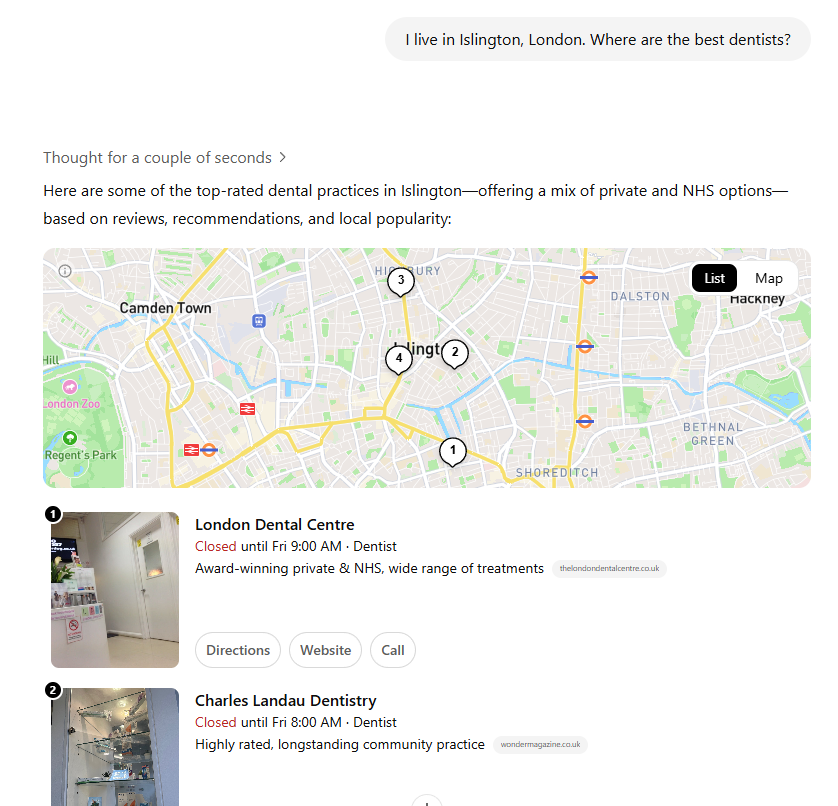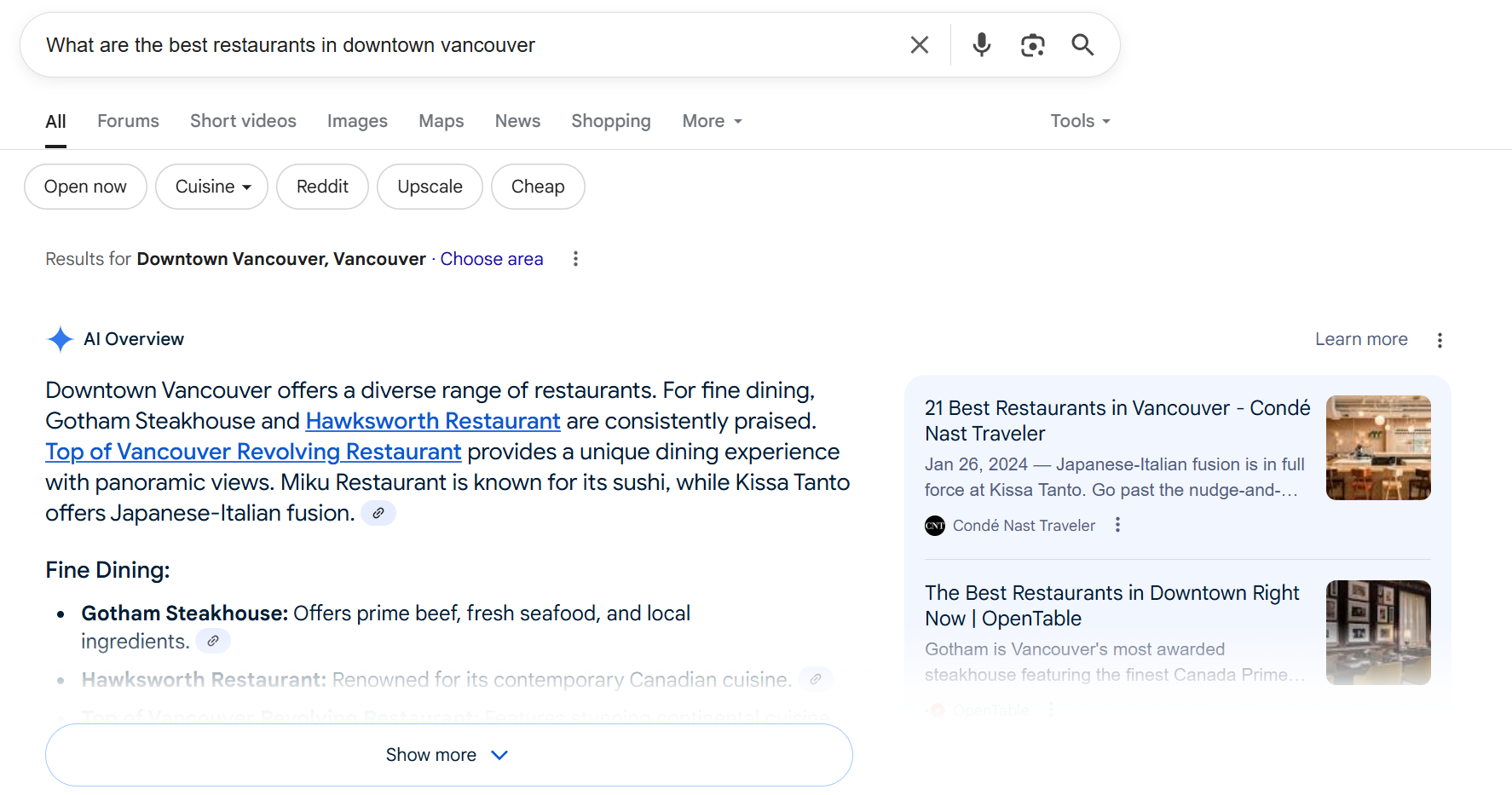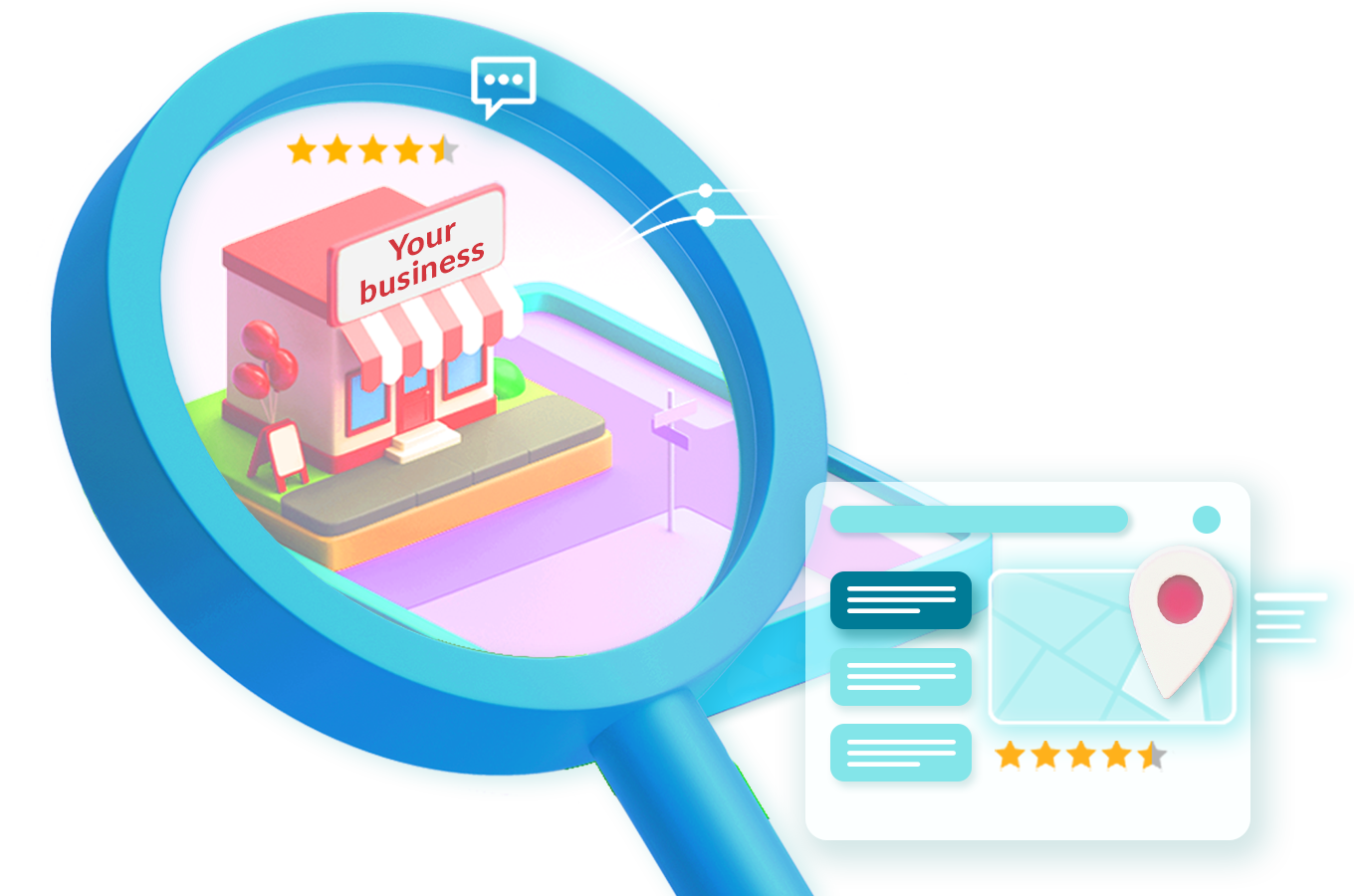If you run a local business, you know the rush: a new five-star review drops, and you're riding high on social proof. But one bad review? It can feel like someone graffiti-tagged your storefront with "AVOID AT ALL COSTS." That one-star review will keep you up at night.
Over the past two decades, we’ve gone from flipping through the Yellow Pages to scanning Google Maps to reading AI-powered summaries. In today’s search landscape, we’re navigating a maze of acronyms beyond SEO — from GEO (Generative Engine Optimization) to AEO (Answer Engine Optimization) to the emerging LLMO (Large Language Model Optimization). At the core, all of this is still SEO built for machines that synthesize information, not just rank pages.
Today, local reviews are no longer a side benefit — they’re a central part of your overall local SEO and visibility strategy. They work hand-in-hand with other local signals, like your Google Business Profile (GBP), other local citations (all of which must be accurate and up to date), reviews, and more. In an AI-driven search environment, your entire online presence becomes data for machines to evaluate, including your online reputation and social proof.
This shift means that we’re no longer just trying to rank a website or local listings; instead, we’re also feeding machine learning models that synthesize information from your reviews, your site, third-party listings, social media, and more. These systems don’t just crawl and index like search engines. They also generate answers by predicting language patterns based on what they’ve seen across the web, including your reviews. They generate responses based on trends, sentiment, and context. What people say about your business, and how they say it, matters more than ever.
Managing multiple locations doesn’t have to be chaotic
Moz Local brings all your locations into one dashboard

Let's break down the three core ways LLMs can use reviews to influence how and when your business gets recommended in AI-powered search experiences.
1. Sentiment & authenticity: LLMs read between the stars
LLMs don't just compare each business’s average rating; they analyze the tone of reviews to understand customer satisfaction and trustworthiness. Authentic and positive sentiments are signals of reliability and customer trust, which can propel your business to a top pick by LLMs in summaries. These models detect emotional nuance: a heartfelt 4-star review raving about your service may outperform a terse 5-star review that says "Good."
Consider this an exercise in semantic analysis of your customer testimonials. LLMs will think beyond “good” and “bad” to identify entities and connect them to sentiment descriptors:
- Positive Signals: "thrilled," "relieved," "impressed," "saved the day," "above and beyond," "gentle hygienist," "expert advice."
- Negative Signals: "disappointed," "frustrated," "ignored," "never again," "rude staff," "waste of money."
The AI Model uses this emotional nuance to build a complex profile of your business. It’s pattern recognition at a massive scale. For example, if a pattern of “unprofessional service” emerges across multiple reviews, your star rating will merely be an illusion. However, avoid trying to skip the line and resist the temptation to load up your listing with fake reviews, as Google will undoubtedly remove them.
Let’s see this in action, shall we? The screenshot below shows how ChatGPT has selected this dentist in London based on “reviews, recommendations, and local popularity.”

Pro Tip: Solicit genuine customer feedback, particularly from your brand loyalists. Monitor reviews on your listings to avoid being caught off guard by inaccurate testimonials or fraudulent spam from deceitful competitors. Specific industries can be cutthroat, so don't let spam tarnish your reputation.
2. Volume & recency: The "Is this business still alive?" signal
A consistent stream of fresh testimonials sends positive signals to LLMs about a business's reputation and reliability in a local market. LLMs prioritize businesses that feel active. A steady stream of recent reviews signals ongoing engagement, up-to-date service, and operational credibility. Creating a tapestry of recent social proof is crucial for models trained to deliver real-time, trustworthy recommendations.
AI Overviews often pull from listicles, but what the top recommendations share isn’t just placement — it’s a steady stream of fresh, high-quality reviews. Even more telling: the language in those standout Google reviews often matches the phrasing used in AI-generated summaries.

Pro Tip: Delivering the best customer service is your most effective marketing tactic, so ensure you have workflows in place via email, SMS, and even in-person interactions to gather testimonials. Provide thoughtful and timely responses to all reviews, including those from angry customers who have written in all caps. Additionally, local marketing tools like Moz Local offer add-ons specifically designed to monitor reviews and respond to them in real-time.
Never Miss Another Review.
Moz Local simplifies review management so you can get back to running your business.

3. Keyword relevance: Why rich reviews are gravy for LLMs
Here's a shocking fact: some of the best signals you can send to both Google and AI models about your business come from the content used in reviews. For example, your website might list HVAC repair as a service. Still, a review on your Google listing might go into more context, stating, "They repaired my broken AC unit during the middle of a heatwave in under an hour - exceptional service!" This type of review provides:
- A service term (AC repair)
- A product context (AC unit)
- A customer sentiment (“exceptional service”)
- A positive outcome (repair done in an hour, no complaints)
The added depth and content provide LLMs with richer, more useful context. In this case, the review doesn’t just reinforce your service; it effectively boosts your business listing by adding a layer of organic relevance, almost like tagging on an additional category.
These keyword-rich testimonials may contain copy that outperforms your website's published content. LLMs mine reviews for product mentions, service information, locations, and contextual clues that match specific queries. Highly detailed and relevant reviews can give you a competitive edge.
Pro Tip: While you can't put pen to paper for your customers, you can guide the narrative of their reviews by providing exceptional service and prompting them for specific feedback. For example, a local fine-dining restaurant should encourage users to give feedback on their meal, ambiance, service, and other key aspects that can tip the scales in their favour to attract foodie enthusiasts. Here are some different ways to encourage better reviews:
- Ask specific follow-up questions: “What did you enjoy the most?”, “What impressed you most about our service?”, etc.
- Showcase great reviews on your website or in an email to inspire a specific tone or style.
- Offer QR codes or short URLs on receipts or signage that directly lead to your listings (e.g. Google Business Profile). Just be sure you’re adhering to the guidelines and rules of different review platforms before soliciting reviews.
Looking for more ideas to encourage reviews? Check out our Local SEO courses in Moz Academy.
Recap: Common review pitfalls that hurt visibility
Avoid these common mistakes if you want both LLMs and users to trust your brand and recommend you:
- Publishing fake reviews: As previously mentioned, fake reviews can get flagged and adversely impact your brand’s reputation.
- Ignoring complaints: Silence suggests neglect in this regard, so do your best to respond to users who have valid complaints.
- Focusing only on Google: It’s essential to collect reviews from a variety of sources, particularly those that are most used in your niche.
What the future holds: LLMO is the new local pack
Search is no longer just about traffic and clicks – it’s about visibility, representation, and exposure to your target audience, no matter what platform they use. In an AI-driven world, some users will start asking LLMs and search engines for a summarized answer, not a menu of links to review.
Here’s how the future might unfold:
- AI chat interfaces continue to surge in popularity, offering users an additional entry point beyond traditional search engines.
- LLMs will continue to improve and surface the most relevant recommendations based on prominence, customer sentiment, and contextual clues.
- Brand mentions and user-generated content across the web will become signals, signaling the importance of generating reviews on multiple platforms.
At the end of the day, Local SEO won’t disappear. Platforms like ChatGPT, Gemini, and Claude just provide new interfaces for users to conduct research, and it’s vital to optimize the sources they’ll use most to recommend local businesses.
Stop losing business to your competitors
Dominate local SERPs with Moz Local

Conclusion: Reviews are signals, not silver bullets
LLMs will reward clarity, consistency, and credibility in the battle for local search. Although reviews are critical to maximizing your business's presence, don't expect them to be generated on autopilot. You can't (and shouldn't) game the system, but you can guide it. Focus on cultivating meaningful, descriptive, and timely reviews across all of your local listings. Here are some action steps you can implement:
- Audit your recent reviews: How many reviews do you have over the last 90 days? If customer testimonials have dried up, that’s not a good sign.
- Respond to all reviews: Engage with your customers and demonstrate to Google and LLMs that you’re staying current with testimonials.
- Encourage customers to share specifics: Prompt your customers to provide in-depth, context-rich reviews around your target keywords.
- Monitor all major review platforms: “To Google” has become a lexicon in the English language, but don’t have a myopic focus with local marketing. Embrace reviews from all relevant platforms.
- Centralize your strategy: Using a tool like Moz Local can help you optimize your listings, monitor reviews, respond to customers, track your local rankings, and post to social media platforms all from one place.
The next time someone asks ChatGPT or searches on Google for the best [insert your service] in your area, make sure your business is the one that gets recommended.



